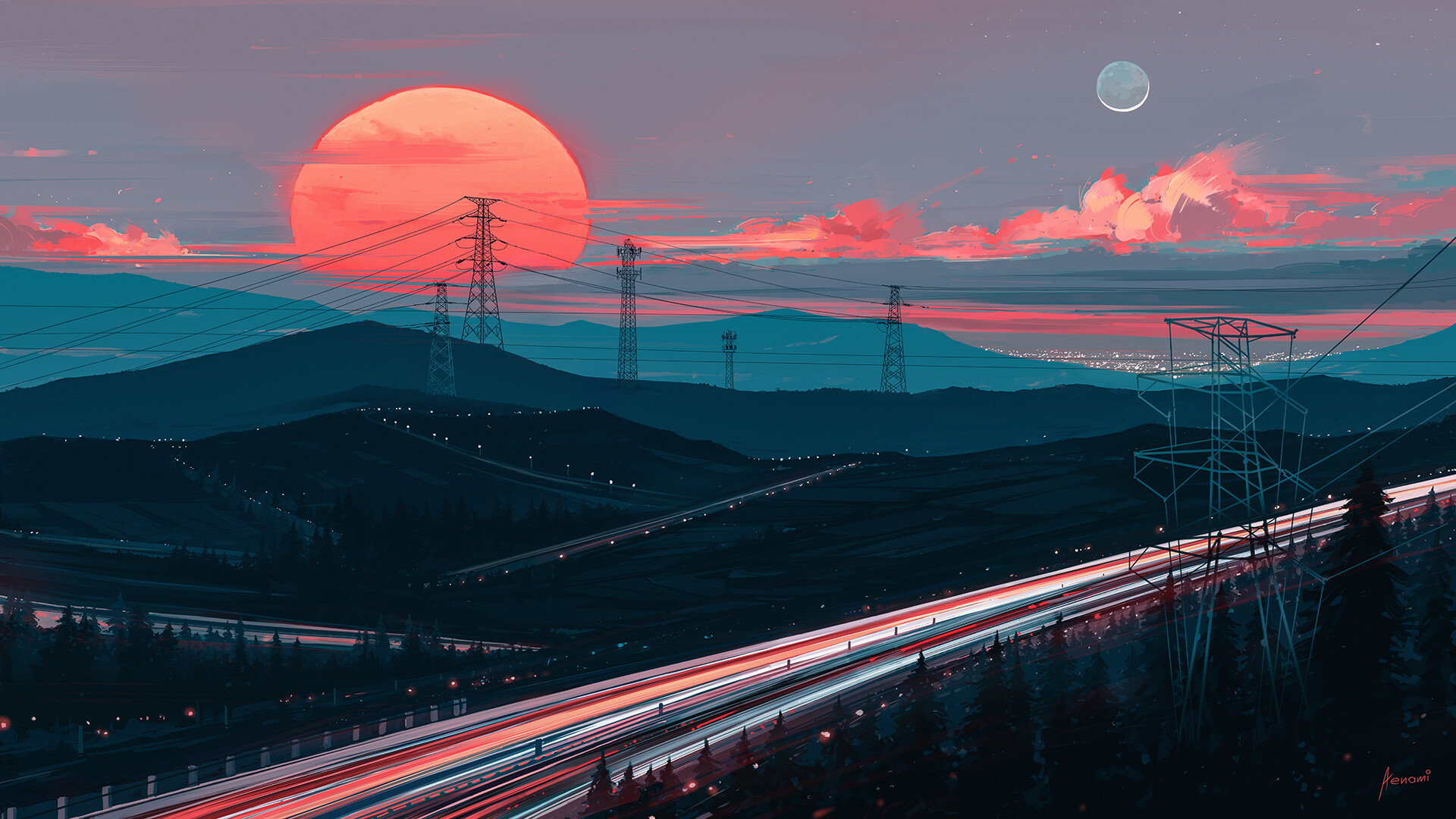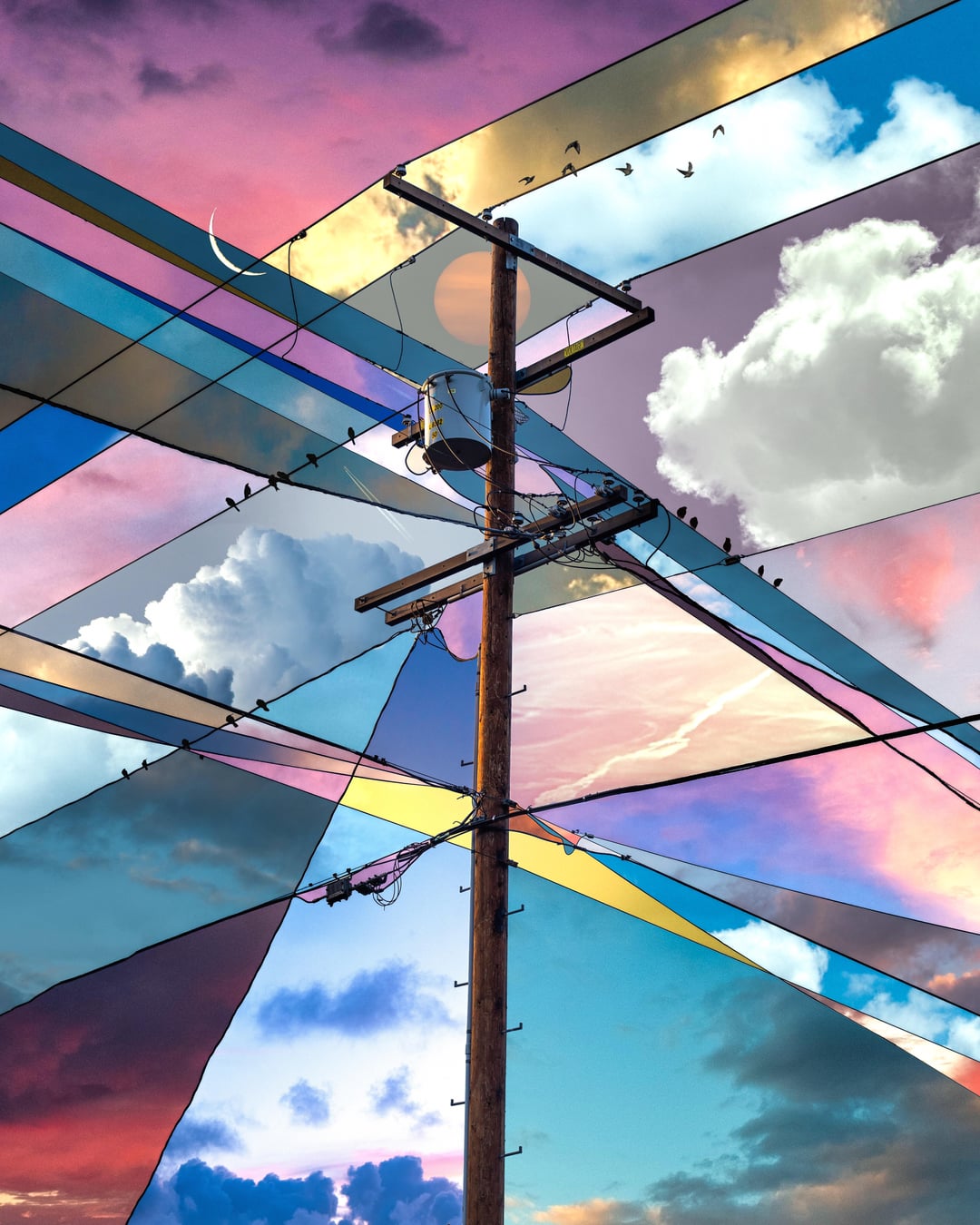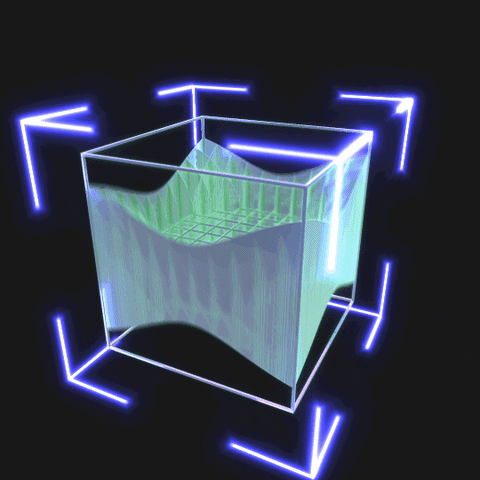This person makes really beautiful digital art that features a lot of power lines. I think it’s really cool. Example:

While they do affect the skyline, i find them kind of a great. Its like wind turbines, they serve a very easy to understand purpose and exist for everyone while having only little environmental impact and lasting a lomg ass time. Compared to infrastructure like starlink which will only ever serve a few people, obstructs the entire sky for everyone from any angle and will only function for a few(5) years before having to be replaced.
while having only little environmental impact
If they’re properly maintained… fucking PG&E!
I can’t find the exact shot, but I used to have a picture of the 220kV lines parallel to the Desert Road as my desktop background. Something like this:https://johnmathews.smugmug.com/Nov-18-Desert-Road-North-Island/i-CkSm5tK
I think the long distance transmission lines are kind of neat. They often become roosts for hawks and eagles here, gives you a chance to see some nature near the city.
The linked comic is ugly as sin though, that’s a high voltage rat nest. And I’m sure there’s a happy medium to be found with that sort of electrical pole, but it doesn’t give me the feeling of serenity that the high tension towers do.
Underground transformers seem to be the better approach for denser connectivity
!wallpapers@lemmy.ca material right there.
For over a decade every one of my wallpapers was an Aenami piece. They’re just so dang cool.
Nice!
Thank you for uploading the full rez. Gimme gimme! <3
Wow, thanks for the link. It’s beautiful
Overhead transmission lines are so 1950s.
Invest in your country.
Japan is earthquake country so they get a pass.
India however…
Japan is slowly burying all their overhead lines into the sidewalks. A lot of urban streets look so much nicer now than they did 10 years ago.
It’s probably no worse in an earthquake than the water mains, which would inherently be a lot more rigid than cables with intentional slack built into every segment.
Afaik, the problem with buried cables is that in case of a flood or tsunami they might break, get exposed and electrocute someone.
Is that less likely to happen if the pole is knocked down instead of the line dug up?
No idea, that’s what I’ve been told, but Japanese engineers usually know what they are doing.
I know that a downed power line is very visible, especially if it’s live and touching water! I wonder if it’s underground if you might miss the signs
deleted by creator
Yes im encouraged by seeing them use those machines to put things in the ground. I had not realized how effiicient it had gotten. May be cheaper than the poles hanging now.
Still about a 10x cost difference, plus (particularly on transmission lines) there’s issues with extra capacitive loading.
so 10x more expensive for buried? if so I am really surprised because those machines seem like less than having the cherry picker and such. Granted though I think it only really works were you have long spans of soft soil. If its all concrete your not going to be able to do it. I would hope in the concrete thing though that tunnels would be available for this infrastructure.
Boring through rock is super slow and expensive, plus now your tunnel needs to be big enough to walk & run machines through, and needs aircon to keep it cool. It is done, but usually only in CBD areas where you need lots of cables and room for future expansion. Google ‘cable tunnel’ and you’ll find lots of examples. Trenching machines go through very expensive consumable digging teeth whereas bucket trucks are just a fancy forklift, burning fuel and needing hydraulic & engine maintenance.
With high voltage cables, the (really thick) insulation gets really expensive, plus you need more conductor (copper/aluminium) because the insulation needs to stay cool. Aerial lines are directly air cooled (better cooling), and can run hotter, because the limit is the metal getting too hot and sagging, not the plastic degrading. Glass insulators are only needed at every tower and can be easily replaced.
Because keeping the conductor small is important, you need to use expensive copper rather than cheap aluminium for cables.
You also need regular joints which are very labour intensive, because they have to be perfect and you can’t make a cable the full length because you can’t ship a drum that big.
If a cable fails, fixing it is much harder than fixing an aerial issue. There was a cable fault in LA in 1989 that took 8 months of round-the-clock work to fix. When a tower falls over (usually because of slope failure or undermining), temporary structures are usually up in a couple of days.
Digging trenches under roads is much more invasive than pulling cables over roads, and rivers are even worse to deal with. It’s very common for underground cables to be converted to overhead when they cross a river before heading back underground.
The Western HVDC Link between Scotland and England was built as an undersea cable because it’s so hard to get planning permission and land rights to do major projects in the UK, as High Speed 2 found out.
So what I have seen is these machines that push them through earth. We do get a lot of commercials in the area telling people to call a number before they do any digging on their property. They come out and mark where the cables are. We did end up having a condo thing where power was knocked out because the guy mismarked the area. He actually came back after and tried to put correct markings in. I heard he got fired.
Yeah, directional thrusting is a thing. It was used a lot when contractors were installing NZ’s new fibre network about a decade ago. I don’t think it’s in as widespread usage for power because power cables tend to have much wider bending radii.
This sorta surprises me as I would think the fiberoptic would be worse than copper. I guess the thing ones could roll up pretty good but we had to be much more careful with them than the copper internet at least.
Investing on your country would be connecting more people to electricity not make the sky look better
The sky looking better is just one thing. No more blackouts when there’s winds or thunderstorms or just stray branches is the real perk.
Interestingly, underground lines aren’t feasible in my hometown because of how close the water table is to the surface. Any trench deep enough to bury cables in would have to worry about flooding with groundwater or saltwater in some places.
The water table is so high that not only are there many places where basements would flood 100% of the year, but the majority of homes still have septic tanks instead of town sewage lines, and you can find houses where the lawn has been raised up with 3 or 4 feet of concrete to raise the septic tank to comply with modern regulations to avoid contaminating the groundwater supply.
Interestingly, underground lines aren’t feasible in my hometown because of how close the water table is to the surface.
I’m 4 meters below sea level. We don’t have basements because the buoyancy of the empty space would cause the houses to literally float on ground water. But we do have buried power lines.
You are being lied to.
Slab on grade crew!!
Thanks for the idea, but have you considered spending it all on bombs instead?
My house has buried lines! …from the street to the house only… 🥺
There are benefits of overhead lines. They are cheaper to install, maintain, and repair. Diagnosing problems are much easier as well. They’re certainly uglier and easier to damage but you don’t have to dig up the road to fix them.
Newer cities shouldn’t install overhead lines but to have old cities with overhead lines switch to underground ones is very expensive and takes a lot of time, something smaller cities likely don’t have the budget for.
You don’t have to dig up the roads to fix buried power lines any more than you have to tear up your walls to replace power lines in your house: you install a conduit (basically a pipe) under the road once and if the cable somehow gets damaged and needs to be replaced you can just run new cable through the existing conduit by simply pushing it in on one end and pulling from the other.
Transformers and other non-cable equipment are typically housed aboveground in little boxes or built in to the house, so they’re actually easier to maintain than if they were installed aboveground on a pole since you don’t need a cherrypicker to access it.
Obviously in a less wealthy small town with existing overhead infrastructure it doesn’t make much sense to move it all underground “just because”, but if you’re already trenching under the road to install water/sewage/gas mains, it won’t cost much extra to throw down an additional one or two smaller conduits for running power cables or telephone/cable/fiber lines.
Powerlines are cool and they make great framing for art
Source: https://www.reddit.com/r/pics/comments/m6wdjr/twenty_skies/

If I’m gonna be entirely honest, I think power lines are really nice looking. I even have them as my phones wallpaper. Maybe it’s just because I have a interest in infrastructure or something, idk
me too! I love em, but that’s just because I hate all the new stuff we have got. So I like to find comfort in the old things, that are still used everyday.
deleted by creator
I know it’s totally backwards, but I feel weird when I go to a neighborhood that doesn’t have above ground lines.
I know it’s a very unpopular opinion but I actually like the aesthetics of infrastructure and industry.
When I see a steel mill, an oil rig or powerplants like wind parks, hydro- or nuclear power I am reminded of the human ingenuity that went into it. How many people needed to band together to work on something bigger than their tribe. I am reminded of our awe inspiring power to shape our environment completely.
Of course with great power… You know the rest.
Even though I hate car centric infrastructure, watching a new highway or bypass spring up out of nothing is an incredible testament to our ability to work together to achieve great things
I traveled across Southeast Asia drawing powerline tangles and run-down alleyways in a sketchbook. It’s definitely a thing.
we have a “wind park” a few miles west of here. i get some of my power from it. slightly less than half of them are inactive at any given time. dunno if its intentional or a rotation scheme. never see any crew trucks around the dead ones
They have to shut off if there’s too much power in the grid, it might be that
I actually kind of enjoy powerlines and junction boxes. There’s a level of engineering that is both rough and delicate that is magnified by how orderly and chaotic they are alike.
Now if the power lines are at the expense of a view through trees, that’d be more a bummer. Likewise if the trees remain that’s a hazard waiting to happen, which is also a bummer.
Buried lines and conduit pipe are preferable in most cases and share similar aesthetic characteristics.
deleted by creator
Not as bad as cars everywhere
The Lain aesthetics is just a regular day in Brazil.
This but unironically.
Fuck appeals to nature.
Honestly, to me the ironic part is the power lines in this artwork are unappealing to me because of the artist not the subject matter. It seems they don’t know what all the lines are or where they go or how they work, so when I look at it and do know what it’s supposed to look like, this just looks like a mess that makes zero sense. The artist has created some sort of electrical fire hazard.
I suspect that came directly from irl
I’ve seen some polls significantly worse than that, but not in a developed country.
I love nature. Termite mounds are nature, honeycombs are nature, spiderwebs are nature. Humans are a part of nature and our infrastructure is a part of who we are.
Carving out exceptions for human artifacts like this takes for granted that a bunch of arboreal primates figured out how to melt down the rocks themselves to extract their purest essence, then wound that essence into ropes that contain the lightning we learned to generate ourselves to power the many other artifacts we developed to bring light into our dwellings, communicate with primates on the other side of the planet, and automate the menial tasks of our lives.
While certainly selfish and misguided at times, everything we make is nature, just as much as honeycombs and spiderwebs.
Have it run underground. Safer for all parts.
Somewhere. Somewhere Japan
It me, in somewhere Japan a couple days ago

Me somewhere Japan yesterday

I’ve actually come to like the aesthetic in certain contexts. Maybe because a lot of cointries bury their power lines so seeing them snake through the countryside evokes a more quaint and raw setting than I’m used to.
I’ve been to Kyushu once and it was really lovely down there so I’d like to get back and see more of the place.
But also:

Remembering that show frustrates me. How did they start with such a hilarious premise and end up with a show that’s okay and not one milligram more?
Power lines blocking sky, Japan: 😍😍😍😍
go look at pictures of the Indian power systems
Do you guys like having power? Lol
Have you heard of under ground power cables? Or of not that, a slightly neater organization of power cables?
In civilized countries we tend to bury them
/j
I know it only makes sense in urban to semi-urban environments to run power underground
Not just civilized countries, it’s fairly common to bury power lines in Florida, because hurricanes.
I weirdly don’t mind




















